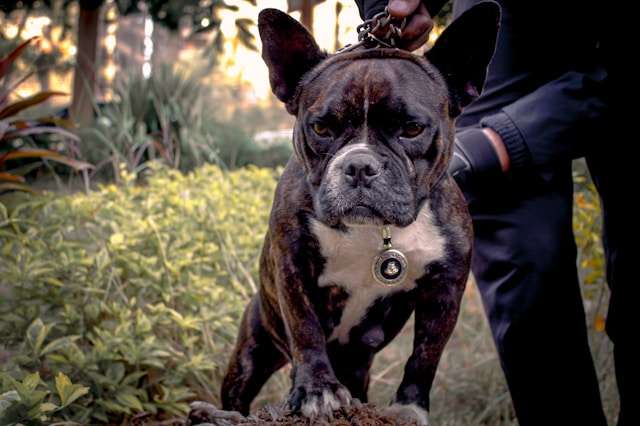Is Olive Oil Good For Dogs? Exploring Benefits and Safe Usage for Canine Health

Is olive oil good for dogs? Let’s see what the research says. Are you curious about adding olive oil to your furry friend’s diet? You’re not alone! Many pet parents wonder if this kitchen staple can benefit their canine companions. Dogs can safely consume olive oil in moderation, which may offer several health benefits for your pup.
Olive oil is packed with healthy fats and antioxidants to support your dog’s well-being. From promoting a shiny coat to aiding digestion, this golden elixir has potential perks for your pup. But before you start drizzling it over Fido’s food, it’s essential to understand the proper usage and any possible risks.
Ready to unlock the olive oil benefits for your dog? Let’s dive into the world of canine nutrition and discover how this Mediterranean marvel might just become your pup’s new best friend. Spoiler alert: your four-legged companion might soon be begging for a taste of the good stuff!
Table of Contents
Key Takeaways
- Olive oil can be a healthy addition to your dog’s diet when used in moderation.
- It may improve your dog’s coat, boost their immune system, and aid digestion.
- Consult your veterinarian before introducing olive oil to your dog’s diet to ensure proper dosage and suitability.
Unlocking the Mysteries of Olive Oil
Olive oil is more than just a cooking staple. It’s a complex substance with various types, nutritional components, and potential benefits for your furry friend. Let’s explore what makes this golden liquid so unique.
What Exactly Is Olive Oil?
Olive oil is the liquid fat extracted from olives, the fruit of the olive tree. It’s been a staple in Mediterranean cuisine for thousands of years. But did you know there’s more than one type of olive oil?
You might find different varieties on store shelves, each with unique characteristics. The production process determines the oil’s classification, flavor, and potential health benefits.
Olive oil primarily contains fats but contains small amounts of vitamins and minerals. Its rich, fruity flavor can vary depending on the olive variety, growing conditions, and extraction method.
Types of Olive Oil
When you’re shopping for olive oil, you’ll likely encounter these primary types:
- Extra virgin olive oil is the highest-quality and least processed variety. It’s extracted through cold pressing without heat or chemicals.
- Virgin olive oil: Similar to extra virgin, but with slightly higher acidity levels.
- Refined olive oil: This type undergoes processing to remove impurities and flavor defects.
- Pure olive oil: A blend of refined and virgin olive oils.
Each type has its flavor profile and potential health benefits. Due to its higher nutrient content, extra virgin olive oil is often recommended for dogs.
Breaking Down the Nutritional Content
Olive oil is packed with nutrients that benefit you and your furry friend. Here’s a quick breakdown:
- Calories: About 119 per tablespoon
- Fat: 13.5g per tablespoon (primarily monounsaturated)
- Vitamin E: 1.9mg (13% of the Daily Value for humans)
- Vitamin K: 8.1µg (10% of the Daily Value for humans)
It’s also rich in antioxidants, notably polyphenols. These compounds have anti-inflammatory properties and may help protect against various diseases.
Remember, while these nutrients can be beneficial, moderation is key when adding olive oil to your dog’s diet.
The Composition of Fats in Olive Oil
Olive oil primarily comprises fats, but not all fats are created equal. Here’s the breakdown:
- Monounsaturated fats: 73% (primarily oleic acid)
- Saturated fats: 14%
- Polyunsaturated fats: 11%
The high concentration of monounsaturated fats, particularly oleic acid, makes olive oil stand out. These fats are heart-healthy and may help reduce inflammation in humans and dogs.
Oleic acid may also help your dog’s skin health by moisturizing from the inside out. This could lead to a shinier coat and less dry, flaky skin.
Antioxidants in Olive Oil
Olive oil is a powerhouse of antioxidants that protect cells from damage. The primary antioxidants in olive oil include:
- Vitamin E: A fat-soluble antioxidant that supports immune function and skin health.
- Polyphenols: These plant compounds have potent anti-inflammatory properties.
- Oleocanthal: A type of polyphenol with similar effects to ibuprofen.
- Oleuropein: Another polyphenol that may have anti-cancer properties.
These antioxidants can help protect your dog’s cells from oxidative stress, potentially reducing the risk of chronic diseases. They may also support brain health and cognitive function as your pup ages.
While olive oil can offer these benefits, it should be used as part of a balanced diet. Always consult your vet before significantly changing your dog’s diet.
Olive Oil’s Role in Canine Nutrition
Olive oil can be a valuable addition to your dog’s diet, offering a range of health benefits. It’s rich in essential fatty acids and antioxidants that support your furry friend’s overall well-being.
How Fatty Acids Benefit Dogs
Fatty acids play a crucial role in your dog’s health. Olive oil is packed with monounsaturated fats, considered “good fats” for your canine companion. These fats help maintain a healthy coat and skin, reducing dryness and itchiness.
Did you know olive oil can also boost your dog’s immune system? The antioxidants in olive oil, like vitamin E, help fight off free radicals and reduce inflammation. This can lead to better overall health and potentially a longer lifespan for your furry friend.
Olive oil for dogs may even help with weight management. It can make your pup feel fuller for longer, potentially aiding in weight loss efforts if your dog needs to shed a few pounds.
Understanding Dogs’ Fat Requirements
Like humans, dogs need a balanced diet with the right amount of fats. But how much is enough, and how much is too much?
About 5.5% of adult dogs’ daily calorie intake should come from fats. Puppies and pregnant or nursing dogs need a bit more, around 8.5%. Olive oil can help you meet these requirements, but moderation is key.
A general rule of thumb is to give your dog about one teaspoon of olive oil per 20 pounds of body weight. However, it’s always best to consult with your vet before significantly changing your dog’s diet.
While olive oil offers many benefits for dogs, it’s high in calories. Too much can lead to weight gain or digestive issues. Start with small amounts and monitor your dog’s response. Your furry friend’s health is worth the extra attention!
Health Perks of Olive Oil for Pooches
Olive oil offers numerous benefits for your furry friend’s health and well-being. This natural oil can be a valuable addition to your dog’s diet, enhancing its coat, boosting its immune system, and aiding digestion.
A Shining Coat and Healthy Skin
Did you know olive oil can work wonders for your pup’s skin and coat? The omega-3 fatty acids in olive oil moisturize the skin and clear flakes, helping to combat dryness and itchiness. Your dog’s coat will thank you, too!
Want to see your puppy’s fur shine? Regular consumption of olive oil can make it happen. The nutrients in olive oil nourish the coat from within, promoting a glossy and healthy appearance.
But don’t just take our word for it. Many dog owners have noticed a significant improvement in their pets’ skin and coat condition after adding olive oil to their diet. Your four-legged friend could be next!
Olive Oil and the Immune System
Looking to boost your dog’s immune system? Olive oil might be just what the vet ordered! This golden liquid is packed with antioxidants that can help protect your pup’s cells from damage.
How does it work, you ask? The vitamin E in olive oil is a powerful antioxidant, fighting off harmful free radicals in your dog’s body. This can lead to improved overall health and a more robust immune system.
But that’s not all! Olive oil’s anti-inflammatory properties can also help alleviate joint pain, which is especially beneficial for older dogs or larger breeds prone to joint issues. It’s like a little health elixir for your furry friend!
Digestive Benefits and Relief from Constipation
Is your pup having tummy troubles? Olive oil might be the solution you’ve been searching for! This natural oil can work wonders for your dog’s digestive system.
Constipation in dogs can be uncomfortable and even painful. But here’s some good news: olive oil acts as a natural laxative, helping to alleviate constipation and keep things moving smoothly.
Not only that, but olive oil can also help reduce inflammation in the digestive tract. This can lead to better nutrient absorption and overall digestive health. Just remember, moderation is key! Too much oil can lead to unwanted weight gain.
Prevention and Management of Disease
Olive oil offers potential benefits for managing various health conditions in dogs. Let’s explore how this golden elixir might help your furry friend stay healthy and happy.
Olive Oil and Cardiovascular Health
Did you know olive oil could be your dog’s heart’s best friend? Rich in monounsaturated fats, olive oil may help lower cholesterol levels and improve circulation in your canine companion, potentially reducing the risk of cardiovascular disease.
But how much should you give? A good rule of thumb is one teaspoon per 20 pounds of body weight daily. Remember, moderation is key! Too much of a good thing can lead to weight gain, which could ironically negate the heart-healthy benefits.
Want to make it fun? Try drizzling a bit of olive oil over your dog’s kibble. It’s like a tasty, heart-healthy topping for their regular meal!
Olive Oil’s Role in Weight Management
Struggling with your pup’s waistline? Olive oil might seem counterintuitive for weight management, but hear me out! While it’s high in calories, olive oil can help your dog feel fuller for longer, potentially reducing overall food intake.
The trick is in the dosage. For a 20-pound adult dog, aim for about 1/4 to 1/2 teaspoon daily. This small amount can help prevent weight gain and obesity, which are associated with issues like diabetes and joint pain.
But remember, olive oil isn’t a magic weight loss solution. It should be part of a balanced diet and exercise routine. Think of it as a helpful sidekick in your dog’s weight management journey!
Cognitive Health and Olive Oil
Ever wish you could keep your dog’s mind as sharp as its nose? Olive oil might be able to help! Its antioxidants, particularly vitamin E, may prevent cognitive decline and dementia in our aging furry friends.
How does it work? The antioxidants in olive oil help protect brain cells from damage, potentially slowing down age-related cognitive changes. It’s like giving your dog’s brain a little shield against the effects of time!
Try adding a small amount of olive oil to your senior dog’s diet. About 1/4 teaspoon per 10 pounds of body weight daily could be beneficial. But as always, chat with your vet before making any significant changes to your dog’s diet. They’re the real experts when it comes to your pup’s health!
Safe Usage and Potential Risks
Olive oil can be beneficial for dogs when used correctly, but it’s essential to understand how to incorporate it safely into your pup’s diet and recognize potential issues. Let’s explore the best practices for using olive oil with your furry friend.
How to Include Olive Oil in a Dog’s Diet
Adding olive oil to your dog’s meals can be simple, but it’s crucial to do it right. Start with small amounts, about 1/4 teaspoon per 20 pounds of body weight daily. Mix it into your dog’s food or drizzle it over their kibble. Always use extra virgin olive oil for the best nutritional benefits.
Remember, moderation is key! Too much olive oil can lead to weight gain or digestive issues. If your pup has pancreatitis or is prone to it, consult your vet before adding oils to their diet.
Tip: Try freezing olive oil in ice cube trays for a calm, healthy treat on hot days!
Recognizing the Signs of Olive Oil Overdose
While olive oil is generally safe, too much can cause problems. Watch out for these signs of overconsumption:
- Diarrhea
- Vomiting
- Greasy stools
- Abdominal pain
- Loss of appetite
If you notice these symptoms, reduce or stop the olive oil and contact your vet. In most cases, these issues resolve quickly once you adjust the dosage.
Remember, every dog is different. What works for one might not work for another, so constantly monitor your pup’s reaction to new additions to their diet.
Comparing Olive Oil to Other Oils
Olive oil isn’t the only healthy oil for dogs. Let’s compare it to some alternatives:
| Oil Type | Benefits | Considerations |
|---|---|---|
| Olive Oil | Rich in antioxidants, promotes heart health | Higher in calories |
| Coconut Oil | It may cause weight gain | May cause weight gain |
| Fish Oil | High in omega-3s, great for joints | Can spoil quickly |
Coconut oil can be a good alternative if your dog doesn’t like the taste of olive oil. Fish oil is excellent for joint health but requires careful storage to prevent rancidity.
Ultimately, the best oil for your dog depends on their specific health needs. Always consult your vet before significantly changing your pup’s diet. They can help you choose the right oil and dosage for your furry friend’s requirements.
The Science Behind the Oil
Olive oil’s benefits for dogs stem from its unique composition of beneficial compounds. Let’s explore the key components that make this oil a potential health booster for your furry friend.
Exploring the Phytonutrients in Olive Oil
Olive oil is packed with potent plant-based compounds called phytonutrients. These include polyphenols, antioxidants that fight free radicals in your dog’s body. Free radicals can damage cells and contribute to various health issues.
Carotenoids, another type of phytonutrient in olive oil, play a crucial role in your dog’s health. They support eye health and boost the immune system. Some carotenoids in olive oil include:
- Lutein
- Beta-carotene
- Zeaxanthin
These compounds work together to protect your dog’s cells from oxidative stress, potentially reducing the risk of chronic diseases.
Understanding Omega-3 Fatty Acids
Olive oil contains omega-3 fatty acids essential for your dog’s overall health. These healthy fats contribute to the following:
- Brain function
- Heart health
- Joint mobility
Omega-3s have anti-inflammatory properties, which can help alleviate joint pain in older dogs or those with arthritis. They also support a healthy coat and skin, potentially reducing itching and flaking.
Your dog’s body can’t produce omega-3s on its own, so adding olive oil to its diet can be a great way to ensure it gets these vital nutrients.
Cell and Tissue Health
Olive oil’s components are crucial in maintaining your dog’s cellular health. The fatty acids in olive oil become part of cell membranes, helping to keep them flexible and functional.
This flexibility is essential for:
- Nutrient absorption
- Waste removal
- Cell-to-cell communication
The antioxidants in olive oil protect against tissue damage caused by free radicals. This protection extends to various organs and tissues throughout your dog’s body, potentially slowing aging and reducing the risk of chronic diseases.
By incorporating olive oil into your dog’s diet, you’re providing them with a natural source of compounds that support their overall health at a cellular level.
Practical Tips and Tricks
Incorporating olive oil into your dog’s diet can be beneficial, but it’s essential to do it correctly. Here are some practical tips to help you make the most of olive oil for your furry friend.
Olive Oil for Different Dog Breeds
Brachycephalic breeds like bulldogs may benefit from olive oil’s anti-inflammatory properties. It can help reduce breathing difficulties and skin irritations common in these breeds. For larger dogs, you’ll need to adjust the dosage. One teaspoon per 20 pounds of body weight is a good rule of thumb.
Does your dog have allergies? Olive oil can help soothe itchy skin and reduce shedding. Start with small amounts and monitor your pup’s reaction. If you notice any improvements in your skin condition, you’re on the right track!
Remember, every dog is unique. What works for one might not work for another. Always consult your vet before significantly changing your dog’s diet.
Creative Ways to Serve Olive Oil
Want to make olive oil more appealing to your furry friend? Try these fun ideas:
- Mix it into their regular food
- Drizzle it over their kibble
- Use it as a base for homemade dog treats
You can even create a tasty “pupsicle” by freezing olive oil with some dog-safe fruits or vegetables. It’s a great way to keep your pup calm and healthy during a hot summer!
Keep in mind the taste and consistency of olive oil. Some dogs might not like it at first. Be patient and try different methods until you find the best for your four-legged companion.
Dealing with Olive Oil Spills
Accidents happen, especially when dealing with oils. If your pup knocks over the olive oil bottle, don’t panic! Here’s what you can do:
- Blot the spill with paper towels
- Sprinkle baking soda or cornstarch to absorb the oil
- Let it sit for 15 minutes, then vacuum
For spills on furniture, mix dish soap with warm water and gently dab the area. This should help remove the oil without damaging your upholstery.
Remember, prevention is critical. Always store your olive oil securely, out of your dog’s reach. When serving, use a spill-proof bowl or mat to minimize messes.
Beyond the Bowl
Olive oil’s versatility extends far beyond your dog’s dinner plate. It can be a handy home remedy with alternative applications that might surprise you.
Olive Oil as a Home Remedy
Did you know olive oil can be your go-to solution for various doggy discomforts? It’s true! A few drops of olive oil massaged into your pup’s coat can work wonders for dry skin. The monounsaturated fats in olive oil help moisturize and soothe irritated skin.
Do you have a furry friend with itchy ears? A drop of warm olive oil in each ear can help alleviate discomfort and even prevent infections. Just remember to consult your vet before trying any home remedies.
Olive oil’s natural properties make it an excellent choice for combating fleas. Mix a tablespoon of olive oil with a few drops of lemon juice and apply it to your dog’s coat. The pesky fleas won’t know what hit them!
Alternative Applications for Pets
Ready for some olive oil magic outside the medicine cabinet? Let’s explore some creative uses!
Have you ever considered using olive oil as a natural conditioner? Mix a teaspoon of olive oil with your dog’s regular shampoo for a luxurious bathtime experience. The omega-3 and omega-6 fatty acids will leave your pup’s coat shiny and soft.
Here’s a fun fact: Olive oil contains squalene, terpenoids, and chlorophyll. These compounds can help freshen dogs’ breath when added to dog food. Just a teaspoon can make a difference!
Want to make playtime more engaging? Rub olive oil on your dog’s favorite chew toy. The scent will make it irresistible, encouraging more play and mental stimulation.
The Bigger Picture
Olive oil offers potential health benefits for dogs, but it’s essential to consider its role in overall canine wellness and how it compares to human health advantages. Let’s explore these aspects in more detail.
Olive Oil in the Greater Context of Dog Health
Olive oil can support your furry friend’s health. It’s packed with antioxidants that combat free radical cell oxidation, potentially slowing premature aging. This is especially beneficial for senior dogs, helping them maintain vitality as they age gracefully.
But here’s the catch – moderation is key! While olive oil can be a healthy addition to your dog’s diet, it’s not a miracle cure. Too much can lead to weight gain, a big no-no for your pup’s health.
Remember, olive oil should complement a balanced diet and regular exercise routine. Keeping your four-legged friend happy and healthy is just one piece of the puzzle.
Comparative Analysis with Human Health Benefits
You might wonder, “If olive oil is good for me, is it just as good for my dog?” Well, yes and no. Many of the benefits humans enjoy from olive oil also apply to dogs, but there are some differences to keep in mind.
For both humans and dogs, olive oil can:
- Help reduce cholesterol
- Support heart health
- Provide anti-inflammatory benefits
Olive oil might even boost your dog’s memory and learning ability. While we can’t expect Fido to start solving crossword puzzles, it could help keep their mind sharp as they age.
But remember, your dog’s digestive system is different from yours. They can’t handle as much olive oil as you can, so always consult your vet about the right amount for your pup.
Frequently Asked Questions
Olive oil can offer several benefits for dogs when used appropriately. Let’s explore some common questions about incorporating this healthy oil into your canine companion’s diet.
Can incorporating olive oil in my dog’s diet improve their skin condition?
Yes, olive oil can help improve your dog’s skin condition. The rich content of vitamin E and omega-3 fatty acids in olive oil can moisturize your dog’s skin and promote a shiny coat. If your furry friend suffers from dry, itchy skin, adding a small amount of olive oil to their diet might help alleviate these issues.
How often is it safe to give olive oil to my canine friend?
You can safely give olive oil to your dog daily, but moderation is key. Start with small amounts and gradually increase if needed. Always consult your veterinarian before significantly changing your dog’s diet.
What are the potential health benefits of feeding olive oil to my dog?
Olive oil offers several potential health benefits for your dog. It’s rich in phytonutrients, vitamin E, and omega-3 fatty acids, which can support your dog’s overall health. These nutrients may help reduce inflammation, support cardiovascular health, and manage weight.
What is the recommended amount of olive oil to give to dogs daily?
The recommended amount of olive oil for dogs varies based on their size. Generally, you can give about one teaspoon of olive oil per 20 pounds of body weight. However, it’s crucial to remember that olive oil is high in calories. A serving can quickly add up, potentially leading to weight gain if not carefully monitored.
Is extra virgin olive oil considered safe for canine consumption?
Yes, extra virgin olive oil is safe for dogs to consume. It’s often considered the best choice due to its minimal processing and higher nutrient content. Always choose a high-quality, pure olive oil for your furry friend.
Does olive oil have any benefits for dogs suffering from flea infestations?
While olive oil isn’t a primary flea treatment, it may offer some indirect benefits. Consuming olive oil could make your dog’s skin less hospitable to fleas, improving skin and coat health. However, it’s best to use vet-approved flea treatments for actual flea infestations rather than rely solely on dietary supplements.








3 Comments